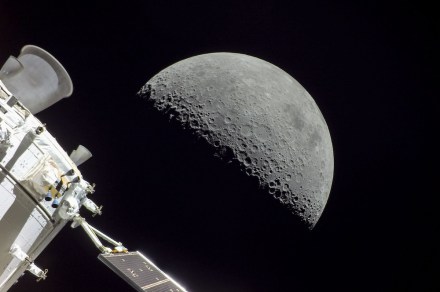
The European Space Agency (ESA) has shared a cinematic video that encapsulates the recent Artemis I mission in just 60 seconds.
That’s packing a lot in for a voyage that lasted 25 days, but we’re sure you’ll agree, the presentation does a great job in pulling together the mission’s key moments while also including some of the mesmerizing imagery captured by the Orion spacecraft during its rendezvous with the moon.
The uncrewed Artemis I mission tested NASA’s new Space Launch System (SLS) rocket and Orion spacecraft on their first orbital mission. ESA designed and oversaw the development of the Orion’s service module, which supplies air, electricity, and propulsion to the capsule.
During the trip, the spacecraft traveled to within just 80 miles of the lunar surface, and also traveled further from Earth than any human-rated spacecraft — 268,553 miles — beating the previous record set during the Apollo era five decades ago.
The Orion’s successful homecoming on December 11 suggests that the hardware performed as expected, though NASA engineers are now checking data from the Orion spacecraft to confirm the all of the capsule’s systems operated properly during the mission.
The early signs are certainly good. “Orion has returned from the moon and is safely back on planet Earth,” Mike Sarafin, Artemis I mission manager, said shortly after the spacecraft’s homecoming. “With splashdown, we have successfully operated Orion in the deep space environment, where it exceeded our expectations, and demonstrated that Orion can withstand the extreme conditions of returning through Earth’s atmosphere from lunar velocities.”
If NASA concludes that everything did indeed function precisely as expected, the space agency can get on with planning Artemis II, which will send Orion on the same route around the moon, only this time with astronauts aboard.
Artemis II could take place as early as 2024, and following that, the highly anticipated Artemis III mission will put the first woman and first person of color on the lunar surface, a voyage that will also mark the first astronaut moon landing since the final Apollo mission in 1972.
Looking even further ahead, NASA wants to construct a permanent base on the moon where astronauts can live and work for extended periods. The moon could also serve as a steppingstone for the first crewed mission to Mars, which NASA believes could take place in the 2030s.
Editors’ Recommendations
Credit: Source link


Comments are closed.